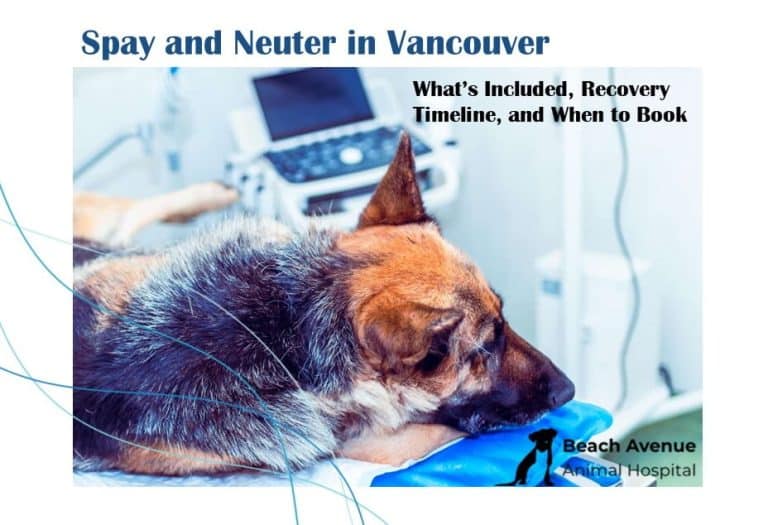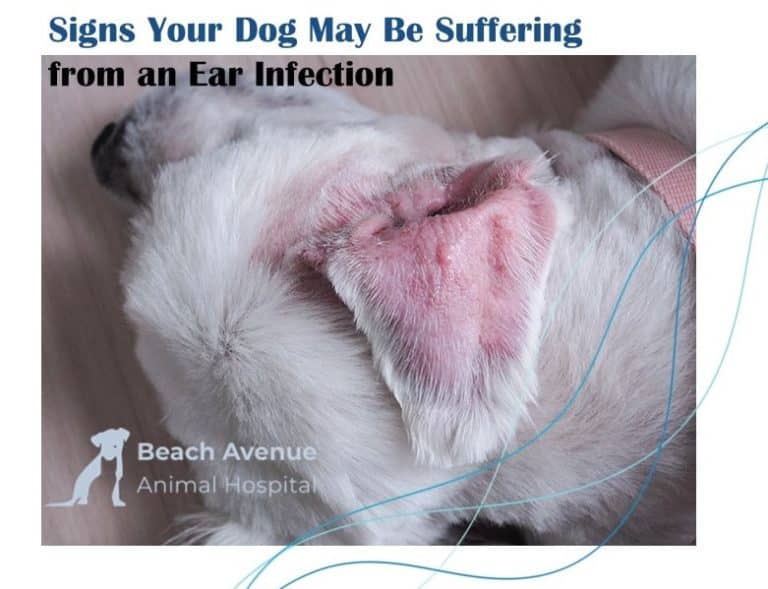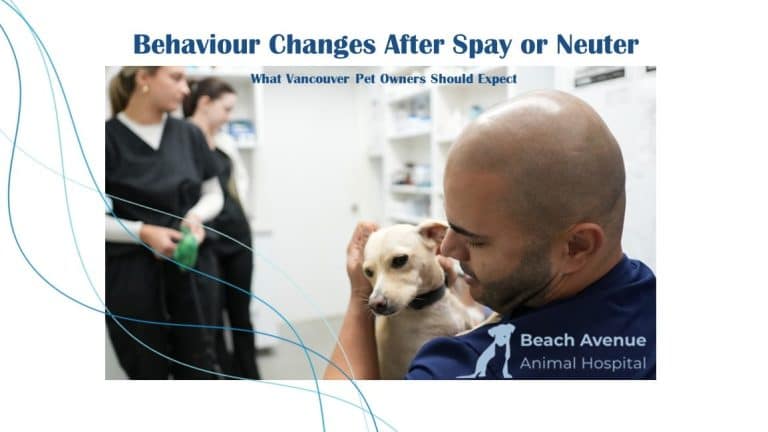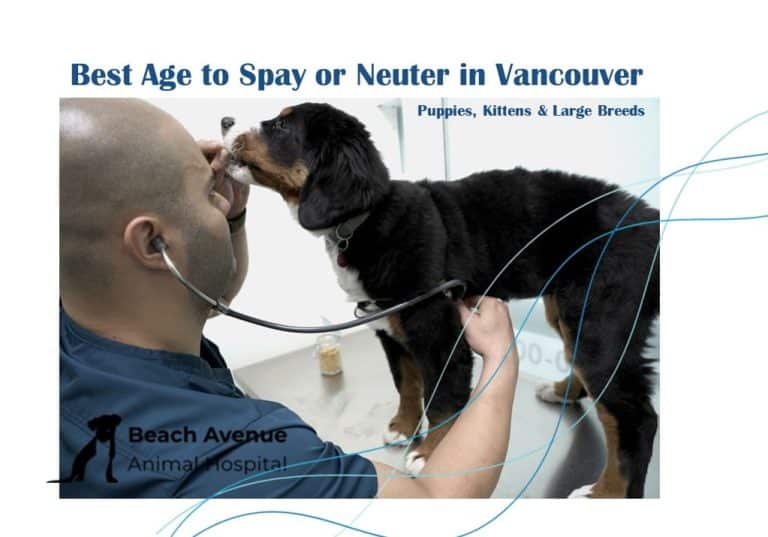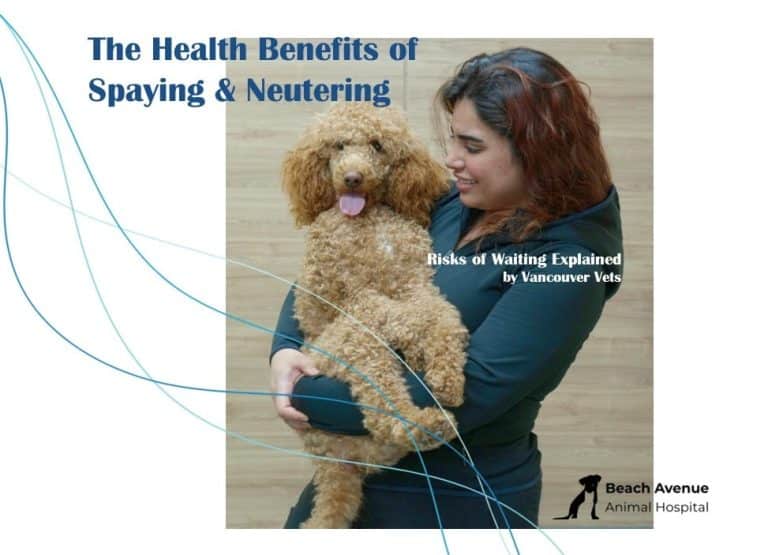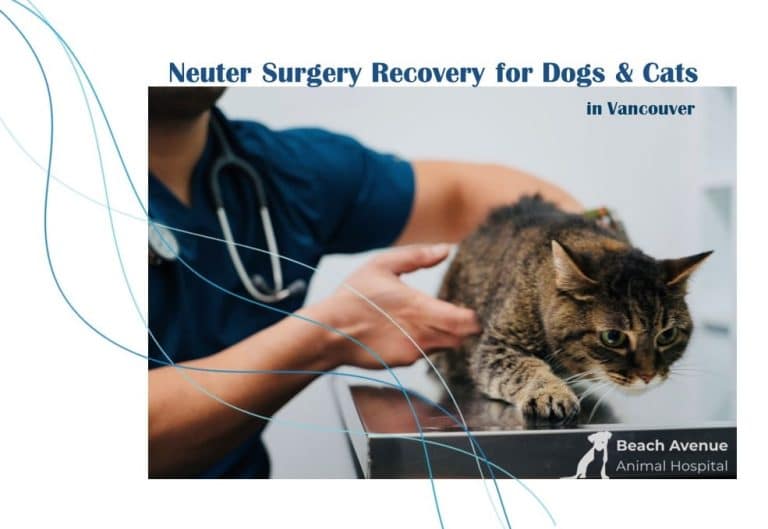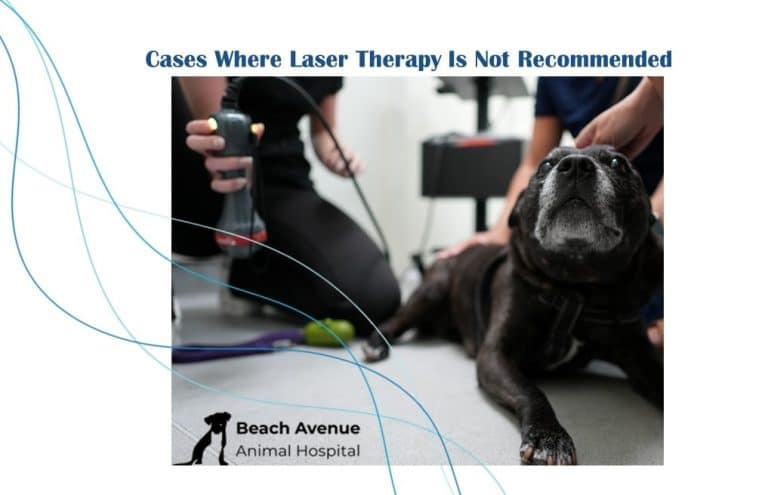Trying something new for your pet—especially a medical treatment—can feel overwhelming. If your veterinarian has recommended laser therapy for your dog or cat, you may be wondering what actually happens during a session, whether it’s safe, and how your pet will react. The good news? Laser therapy is a non-invasive, drug-free treatment that many pets tolerate well—and often enjoy.
At Beach Avenue Animal Hospital, one of the best animal hospitals in Vancouver, BC, we offer advanced laser therapy for dogs and cats to relieve pain, accelerate healing, and improve comfort—without the stress of surgery or medications.
In this guide, we’ll walk you through what to expect from your pet’s very first laser therapy session—from preparation to post-visit care—so you feel fully confident walking in.
What Is Laser Therapy for Pets?
Laser therapy, also known as cold laser or photobiomodulation therapy, uses specific wavelengths of light to stimulate cell regeneration and increase blood circulation in targeted areas. It’s commonly used to help treat:
- Arthritis and joint pain
- Soft tissue injuries
- Surgical incisions
- Inflammatory conditions
- Chronic wounds
Unlike surgical lasers, therapeutic lasers do not cut or burn tissue. Instead, they deliver concentrated light energy that penetrates beneath the skin to promote natural healing at the cellular level.
How to Prepare Your Dog or Cat for a Session
Thankfully, there’s very little you need to do before a laser therapy appointment. There’s no need to fast your pet or administer sedatives. Here are a few simple ways to help ensure a smooth visit:
- Keep your pet leashed or in a carrier for safety.
- Share any updates on your pet’s symptoms or pain levels with the vet.
- Bring a list of any medications or treatments your pet is currently receiving.
- Try to keep your pet calm before the appointment, especially if they’re anxious in new environments.
If your veterinarian has prescribed a series of sessions, try to keep appointments consistent to ensure the best results.
What Happens During the Laser Therapy Appointment?
Laser therapy sessions typically take 5 to 20 minutes, depending on the size of the treatment area and the condition being treated. Here’s what a typical visit looks like:
- Your pet will be gently positioned on a padded table or soft surface.
- You and the veterinary staff will wear protective goggles, and sometimes your pet will too (depending on the area treated).
- The veterinarian will move a handheld laser device slowly over the affected area.
- The procedure is completely painless—your pet may feel a mild warming sensation or nothing at all.
- Many pets become relaxed or even drowsy during treatment.
- The setting is calm, quiet, and designed to minimize stress—especially for nervous or senior pets.
Aftercare: What to Expect at Home
Most pets experience no side effects after laser therapy. In fact, many pet owners report visible improvements within hours or days, such as:
- Reduced limping or stiffness
- Improved mobility
- Increased comfort and alertness
- Better sleep or appetite
You won’t need to restrict activity after a session unless your vet advises otherwise. Keep an eye on your pet’s behavior and jot down any changes you notice—it can help track how effective the treatment is over time.
Is Laser Therapy Right for Your Pet?
Laser therapy is especially helpful for:
- Senior dogs or cats with chronic joint pain
- Pets recovering from surgery or injury
- Active dogs with repetitive strain injuries
- Pets with back issues or hip dysplasia
It’s not always suitable for pets with certain tumors or active infections, which is why your vet will always evaluate whether your pet is a good candidate. In many cases, laser therapy is combined with other treatments like physiotherapy or medication for better results.

Laser therapy is a safe, effective treatment that can significantly improve your pet’s quality of life—without medication or invasive procedures. Whether your furry companion is recovering from surgery or simply slowing down due to age, this gentle treatment may be exactly what they need.
FAQ Section
Is laser therapy safe for dogs and cats?
Yes, laser therapy is a safe, non-invasive treatment that uses light energy to promote healing, reduce inflammation, and relieve pain. It’s commonly used for arthritis, injuries, and post-surgical recovery in both dogs and cats.
What does a pet experience during a laser therapy session?
Most pets feel only a gentle warming sensation or nothing at all. Sessions are quiet and calming, and many pets relax or even fall asleep during the treatment.
How long does each laser therapy session take?
A typical session lasts between 5 to 20 minutes depending on the size of the area being treated and the condition of your pet.
Does laser therapy hurt?
No, laser therapy is completely pain-free. In fact, many pets enjoy the sensation and find the sessions soothing.
How many laser therapy sessions will my pet need?
The number of sessions depends on your pet’s condition. Acute injuries may require just a few, while chronic conditions like arthritis might benefit from ongoing treatment plans.
Can I stay with my pet during laser therapy?
Yes, at Beach Avenue Animal Hospital in Vancouver, we often allow pet parents to stay nearby during the session, provided safety protocols are followed (like wearing laser-safe eyewear).
Is any special preparation needed before the appointment?
No fasting or sedation is required. Just bring your pet on a leash or in a carrier, and let the vet know about any recent symptoms or changes.
Are there any side effects after pet laser therapy?
Side effects are extremely rare. Most pets show no negative reaction—only signs of improvement like reduced limping or increased comfort.
What conditions can laser therapy treat in pets?
Laser therapy can help with arthritis, joint pain, hip dysplasia, wounds, post-op healing, ear infections, and more. Your vet will assess whether it’s suitable.
Where can I get laser therapy for my dog or cat in Vancouver?
Beach Avenue Animal Hospital offers advanced laser therapy for dogs and cats in Vancouver, using safe and effective equipment in a calm clinical setting.
At Beach Avenue Animal Hospital, we’re proud to offer advanced laser therapy for dogs and cats in a calm, compassionate environment. If you think your pet could benefit, give us a call—we’re here to help them heal comfortably.


